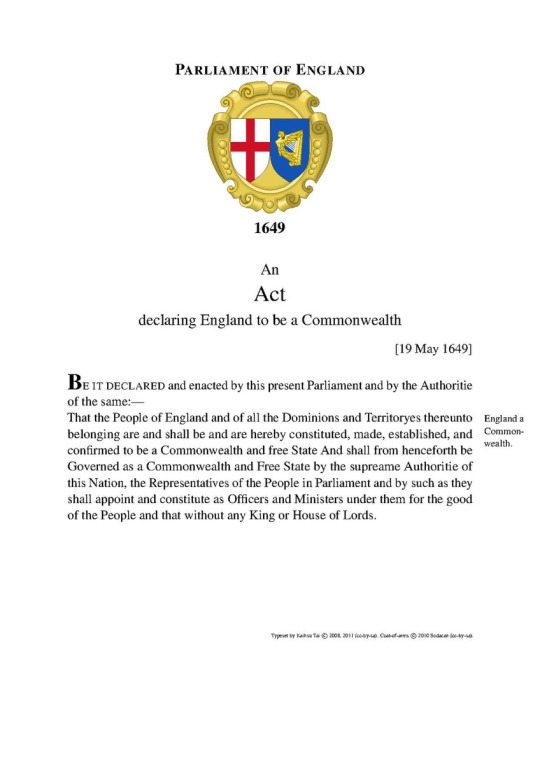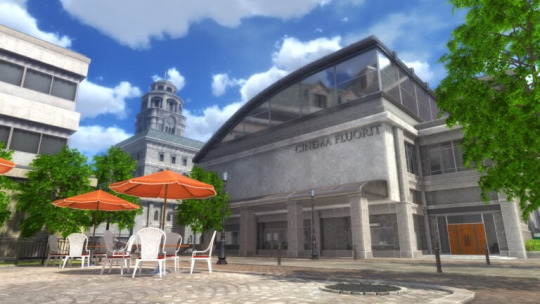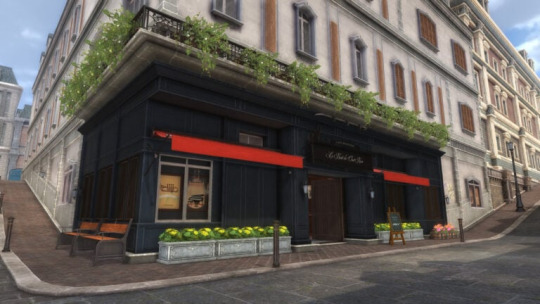#langport
Explore tagged Tumblr posts
Text

Literally drawing circles around our competitors 🐍 Interlocking rings and snakes pattern by Fat Punk Studio. Explore our creative design services via link below.
#artphotography#visualart#rings#reptile#snakes#snakeprint#artdesign#illustrationart#shape#geometric#printandpattern#mehandidesign#mehandiart#langport#image#abstractart#patterns#layout#artwork#illustration#design#art
0 notes
Text
South West Surveys

SOUTH WEST SURVEYS - Surveying Services For Every Application
Visit Our Website
#3D Modelling Tenbury Wells#3D Modelling Radstock#3D Modelling Lechlade#3D Modelling Langport#3D Modelling Crewkerne#3D Modelling Watchet#3D Modelling Patchway#3D Modelling Bradley Stoke#3D Modelling Upton-upon-Severn#3D Modelling Lydney#3D Modelling Newent
0 notes
Note
After Oliver Cromwell's death was the Commonwealth doomed, because of structural factors, or a republic like the United Provinces could have survived but it failed because of contingency and individuals' actions? How guilty is Cromwell for not setting solid foundations for the continuity of the Commonwealth?

Yes, the Commonwealth was doomed after Cromwell's death, but the reason why is both structural factors and contingency/agency - because the actions of a few individuals (including but not limited to Cromwell) set those structural factors in motion.
In term's of Cromwell's guilt, I would say that he bears ultimate responsbility for the institutional weaknesses of the Commonwealth. To be totally fair, he did try to fix those weaknesses repeatedly - but because of the actions he took at the beginning that set up the structural factors in question, those efforts came to naught.
That's the TLDR, I'll do the specific explanation below the cut, because it's going to go long.
Background
Just to make sure everyone's on the same page: in 1640, Charles I is forced to call Parliament even though he hates doing it. He dissolves Parliament after three weeks. (Hence why it's called the Short Parliament.) He's then forced to call Parliament again, and this Parliament is the Long Parliament. The Long Parliament enacts a whole series of legislation that Charles I hates, and then in 1642 the conflict between King and Parliament breaks out into the First English Civil War (1642-1646).

During this first phase of the conflict, it takes a while for Parliament and the Parliamentary generals to get their act together. Things begin to turn around in 1644 when the Scottish Covenanters join the war on Parliament's side and they win the Battle of Marston Moor - which gives Parliament control of the North of England and is the first battle where Cromwell plays a major role. The next year, Parliament gets rid of the original Parliamentary generals through the Self-Denying Ordinance, forms the New Model Army under Fairfax and Cromwell (the one guy specifically exempted form the Self-Denying Ordinance), and Fairfax and Cromwell go on to completely destroy the Royalist armies at Nasby and Langport.
Charles hangs on for a bit, but is eventually captured in 1646 and the first Civil War ends. The question is now: what do we do, now that Parliament has won?
The Putney Debates
Once the fighting was over, the political fighting could begin and it was quite complicated. You had the Long Parliament, which was dominated by the moderate "Presbyterian" faction who had been locked out of military power by the Self-Denying Ordinance. You had the New Model Army, which was religiously Puritan but split politically (more on this in a second). You had the Scots, politically constituted by the Scottish Parliament and militarily represented by the Covenanter armies, who wanted Presbyterianism to be extended throughout Britain. And then you had the Royalists and Charles I, who were usually but not always the same faction.
I'm going to focus here on the part of this conflict that involved the Long Parliament and the New Model Army. The Long Parliament wants to do a deal with Charles I - although the problem is that Charles is stretching out negotiations in the hopes that if everything collapses into anarchy he might get himself back on the throne - it wants a unified British Presbyterian Church established (because it had kind of agreed to set one up as the cost of getting Scottish support during the war), and it wants to get rid of the New Model Army which it views as dangerously radical and way too powerful.
The New Model Army isn't sure what it wants, because it's split between the Agitators (i.e, the Levellers) and the Grandees (the senior officers of the Army, led by Cromwell and Fairfax) - although the one thing both sides agree on is that they're not going to accept a single established Presbyterian Church and that they aren't going anywhere until they get their back pay and some sort of reforms happen that justify four years of civil war.
In the mean-time, everyone's getting very testy. First, the Long Parliament orders the New Model Army to disband in early 1647. The New Model Army refuses to disband. Then the New Model Army takes control of the prisoner Charles I in early June. In late June, a pro-Presbyterian mob invades Parliament calling for an established Presbyterian Church and for Charles I to be brought to London, causing all of the Independent (i.e, Puritan) MPs and the Speaker to flee the city and seek the protection of the New Model Army. Then in August, the New Model Army marches on London, and forces Parliament to enact a Null and Void Ordinance undoing everything the Long Parliament had done since June, which causes the Presbyterian MPs to withdraw from Parliament (temporarily), which means the Independents are now in the majority.
All of this is very confusing, and no one in the New Model Army is sure what to do now that they hold all the cards. So the New Model Army decides to have a public debate at Putney in late October in order to hash out what the Army's position is going to be.
At Putney, both sides put forward manifestos for what the Army should stand for. The Agitators put forward the "Agreement of the People," which calls for:
the Long Parliament to be dissolved and elections to be held for a new Parliament.
these elections to be held after a reapportionment of Parliament to establish equal districts on the basis of one-man-one-vote.
elections for a new Parliament every two years.
the electorate to be made up of "all men of the age of one and twenty years and upwards (not being servants, or receiving alms, or having served in the late King in Arms or voluntary Contributions)." (i.e, fairly universal male suffrage).
Parliament is to have full Executive and Legislative authority, except that the people shall have liberty of conscience, freedom from conscription, equality before the law, and there shall be amnesty for anything done or said during the Civil War.
The Grandees, who freaked the fuck out when they heard these terms and started immediately calling the Agitators "Levellers" (i.e, 17th century for "commie bastards"), put forward the "Heads of Proposals," which calls for:
the Long Parliament to be dissolved and elections to be held for a new Parliament.
these elections to be held after Parliament decides on "some rule of equality of proportion...to the respective rates they bear in the common charges and burdens of the kingdom," or on the basis of some other rule that will make the Commons "as near as may be" to equally proportioned.
for the next ten years, Parliament and not the King has authority over the military, finances, and the bureaucracy.
for the next five years, Royalists aren't allowed to run for elected office or hold appointed public offices.
the Church of England will continue to exist, but you don't have to read the Book of Common Prayer if you don't want to, you don't get fined for not going to CoE services or attending other services, and there will be no imposition of a Presbyterian Covenant.
You can see that there are some overlapping areas (no more Long Parliament, elections every two years, some form of reapportionment, some form of liberty of conscience) but there are some really significant differences - a republic versus a constitutional monarchy, a unicameral Parliament versus retaining the House of Lords, and universal suffrage versus property requirements.
During the Putney Debates, Cromwell flatly refuses to accept anything other than a constitutional monarchy, Ireton (Cromwell's son-in-law) refuses to accept universal suffrage, but the two sides agree that a committee will work out a compromise on the basis of everything else from the "Agreement" as long as the Agitators agree to go back to their regiments.

Then the King escapes from captivity and everyone panics. Cromwell and Fairfax scramble a new manifesto together and try to get the New Model Army to approve that manifesto along with everyone taking a loyalty oath to Fairfax and the General Council of the Army, the Agitators see this as a stab in the back and start up a mutiny, and Cromwell and Fairfax crush the mutiny and arrest the Agitator leadership. In late November 1647, Charles I, who has been recaptured by this point, signs a secret agreement with the Scots to invade England and restore Charles to the throne in return for Presbyterianism being established in England.
The Second Civil War
Things slow down for a bit, because the Scots are actually quite divided about this agreement - the Kirk actually condemns it as "sinful" - and it takes until April for the pro-agreement faction (known as the "Engagers") to get a majority in the Scottish Parliament.
In May 1648, Royalist uprisings break out across the kingdom, with South Wales, Kent, Essex, and Cumberland being particular centers of Royalist strength, and the Scottish Covenanter army crosses the border and invades England. Unfortunately for Charles, the Royalists, the English Presbyterians, and the Scots, they completely fail to coordinate their actions and the New Model Army is able to completely crush the uprisings one-by-one and then turns its attention to the Scots.
At the Battle of Preston in August 1648, the New Model Army under Cromwell wins another one of its ridiculously lopsided victories that make his emerging belief that he had been chosen by God somewhat understanable, and the formidable Covenanter army is crushed.
By this point, Cromwell and the rest of the Grandees are convinced of two things: one, no more negotiating with the King. As the Army Council put it rather ominously, it was their duty "to call Charles Stuart, that man of blood, to an account for that blood he had shed, and mischief he had done." Two, the (English) Presbyterians could not be trusted. They had conspired with the King and their Scottish co-religionists to overthrow the government and abolish religious liberty, and thus they had to go.
Thus, in December 1648, Pride's Purge is carried out, in which a detachment of troops acting under orders from Ireton (and thus from Cromwell) bar 140 MPs from taking their seat and arrest 45 of them. This effectively ends the Long Parliament, and the remaining 156 MPs continue to sit as the Rump Parliament. In the New Year, the Rump Parliament then votes to put the King on trial for treason and then afterwards establishes the Commonwealth as a unicameral Republic.
What Comes Next?
You'll note a couple things at this point: first, Cromwell's political positions are fairly fluid and change with events, so that he goes from being a staunch constitutional monarchist in late 1647 to a determined regicide by January 1649. Second, even though it's been a few years since the Putney Debates, Cromwell and the Grandees haven't implemented the "Heads of Proposals" - most crucially, they haven't dissolved Parliament and called for new elections, nor has a new Constitution been established.
Initially, one might say that Cromwell was distracted by his campaign to crush the Confederate-Royalist coalition in Ireland and then to crush the alliance between the Covenanters and Charles II. But by 1651, he's back in England and there's still no election and still no Constitution. Cromwell tries to get the Rump Parliament to call for new elections, establish a new Constitution that incorporates Ireland and Scotland now that they've been conquered, and finds some sort of religious settlement.
For two years, the Rump Parliament deadlocks on practically everything except the religious settlement, where it manages to piss off everyone by keeping the Church of England and its tithes, but also getting rid of the Act of Uniformity and allowing Independents to worship openly, but also passing all kinds of Puritan moral regulations. In April of 1653, Cromwell proposes that the Rump Parliament establish a caretaker government that will deal with the Constitution and new elections, but the Rump deadlocks on that too. This causes Cromwell to completely lose it and dissolve the Rump Parliament by force, culminating in one hell of a speech:
It is high time for me to put an end to your sitting in this place, which you have dishonoured by your contempt of all virtue, and defiled by your practice of every vice; ye are a factious crew, and enemies to all good government; ye are a pack of mercenary wretches, and would like Esau sell your country for a mess of pottage, and like Judas betray your God for a few pieces of money. Is there a single virtue now remaining amongst you? Is there one vice you do not possess? Ye have no more religion than my horse; gold is your God; which of you have not barter'd your conscience for bribes? Is there a man amongst you that has the least care for the good of the Commonwealth? Ye sordid prostitutes have you not defil'd this sacred place, and turn'd the Lord's temple into a den of thieves, by your immoral principles and wicked practices? Ye are grown intolerably odious to the whole nation; you were deputed here by the people to get grievances redress'd, are yourselves gone! So! Take away that shining bauble there, and lock up the doors. In the name of God, go!
Now there's no more Parliament and Cromwell and the Council are running the country on their own, but they don't have a plan for what to do next. A Fifth Monarchist member of the Council proposes appointing a "sanhedrin of saints" on the basis of religious credentials who will set up a godly commonwealth and bring about the imminent return of Christ. That doesn't happen, but the Council does like the idea of an appointed (rather than elected) body called the Nominated Assembly, which becomes known as Barebone's Parliament. This Parliament doesn't make it a year because of how badly it's divided between moderate republicans who want a functioning government and Fifth Monarchists who believe that Jesus Christ is coming back to Earth any day now, so why bother? Ultimately, Barebone's Parliament dissolves itself.
This then leads the Council to pass the Instruments of Government, which was essentially an adapted version of the original "Heads of Proposals." Under the Instrument, Executive power would be held by the Lord Protector who would serve for life, Legislative power would be held by a Parliament elected every three years, and then there would be a Council of State appointed by Parliament which would advise and elect the Lord Protector upon the death of the previous occupant. Thus, the Protectorate is born.
In 1654, Cromwell finally manages to get the First Protectorate Parliament elected...and it only lasts a single term, agrees to none of the 84 bills that Cromwell and the Council of State, and is promptly dissolved as soon as the Instruments would allow. And so on it went through the Second and Third Protectorate Parliaments, and then Cromwell died and the rest is history.
Conclusion
Coming back to what I mentioned at the very beginning about the interplay between structural factors and individual actions, I think we can see a kind of ratchet effect whereby decisions taken early on that foreclosed certain options compound on each other over time, leading to structural factors that weakened the Commonwealth.
The crucial turning point(s) to me are the decision to reject the Agreement of the People in 1647 and then the failure to enact the Heads of Proposals in 1647 after the Putney debates, or in 1648 or 1649 after Pride's Purge.
With the Agreement, you could have had a small-d democratic republic which would have offered ordinary working people new political rights and protections and the opportunity to buy-in to the new regime through an election for a new Parliament. With the Heads of Proposals, you could have had a more conservative republic that would have offered much the same to the traditional landed political class, which would have then granted their consent to the new regime by both standing for election and voting in that election for a new Parliament.
That kind of legitimacy was absolutely necessary in order to ensure the long-term allegiance of the population to the new regime in the face of Royalist revanchism, let alone the kind of radical changes (putting the king on trial, declaring a republic, establishing a religious settlement) that Cromwell and the Grandees saw as essential.
#history#english history#oliver cromwell#english commonwealth#english civil war#wars of three kingdoms#early modern history
75 notes
·
View notes
Text



15th August 1645 saw the Battle of Kilsyth.
This battle was during the Wars of the Three Kingdoms. James Graham, the Marquis of Montrose, defeated General Baillie’s Covenanter Army.
The Covenanter government of Scotland had entered into alliance with the English parliament and had entered the Civil War in England in early 1644, the Scottish army having a dramatic impact in the campaign for the north of England. In response, following the royalists’ dramatic defeat at Marston Moor, the King appointed the Marquis of Montrose as his military commander in Scotland. On 28th August 1644 Montrose raised the royal standard and, for most of the time with little more than 2000 troops, fought a campaign in which he won a series of dramatic successes in the Highlands against the Covenanter forces. Heavily outnumbered, he effectively exploited the terrain to outmanoeuvre the Covenanter army.
Having won victories at Tippermuir, Aberdeen, Fyvie, Inverlochy, Auldearn and Alford he now attempted to break into the Lowlands. This was the only positive news for the embattled Charles I, whose cause was now heading for destruction in England, having just lost the battles of Naseby (Northamptonshire) and of Langport (Somerset). The king’s strategy now moved towards the uniting of Scottish and English royalist forces in a final desperate attempt to salvage the war.
From Alford, the royalists headed south along the east coast making for Glasgow. Two Covenanter forces, under Argyll and Baillie, followed in pursuit. Montrose turned to engage them at Kilsyth, where the route from Stirling to Glasgow skirts south of the Campsie Fells. In the ensuing battle the royalists destroyed the last Covenanter army in Scotland, in what was to prove the high point of their campaign in Scotland.
16 notes
·
View notes
Text

The lanes around here are a little too narrow for this big beast seen (along with many others) in Eli's pub in Langport.
7 notes
·
View notes
Text


Langport, Somerset - |03.08.2024|
4 notes
·
View notes
Text

A baker braved floodwater to deliver bread in Langport, Somerset (1935).
#vintage photos#old photos#history#sealed in time#sealedintime#historical photos#photography#history photos#photos#rare photos#historyphotos#historicalphotos#vintagephotos
4 notes
·
View notes
Text

this
how do you get beauty's blade out of sword maiden
Not to mention in the original game/English patch where there are multiple jokes about her nickname in relation to her age going sword maiden how could you call yourself a maiden at that age. (Van gets a good amount of age jokes too)
"
Elaine, and only Elaine do not like the name because A. She is a humble person and feels unworthy B. She is embarrassed about being a "Maiden" at her age. Certain characters troll her about it. But everyone else respects the name.
"Beauty's blade" is a cringe title, even to some of us playerbase. Not to mention, now NISA has to change the "reason" behind the embarrassment. What are they gonna say; "She is too old to be called beauty"?
"
or calling aaron crimson khan while you could say that
It's actually a pretty good localization choice to convey Aaron's position in Langport to English speaking folks right away. Aaron's title in Japanese is 小覇王 or literally "Little Conquerer." This was the nickname (in Japanese) of Sun Ce from the 3 Kingdoms period who's military campaign was notable for the time and helped to eventually establish the state of Wu when there was other big dog Generals of the time.
but it doesnt feel right since from what heiyue are meantto represent chinese mafia's "
so aaron would be chinese






Sword Maiden is embarrasing if you're actually taking the context of why it is portrayed like it in the game, instead of inherently attributing that. She's already in her mid-twenties and is still known as a 'Maiden,' that's the point of all the handful jokes throught KuroDaybreak (which NISA did tended to rewrite). Just like with Claire in Sen (Cold Steel) III: "Well, that title is starting to feel like it's a little too over the top for me lately."/"ふふ、その名前もそろそろ気恥ずかしくはあるんですが。" "I AM in the second half of my 20s now, after all."/"……気がつけばあっという間に20代も後半ですし。" Or in Hajimari (Reverie): "True. I still go by the Icy Maiden for––erm, nows not the time for that."/"そうですね、レクターさんはまだしも未だに“乙女”は──じゃなくて。" Even in this post's instance, it's still about that. The topic was explicitly "I (Van) don't want to wear a school uniform at my age. Elaine's is going to hate it even more (because she's more sensitive about that). It's fine Sword Maiden is just as embarassing (still on the topic of it relating to her age)"
4 notes
·
View notes
Text
The Legend of Heroes: Kai no Kiseki – Farewell, O Zemuria web commercial; more characters and locations detailed
From Gematsu

Following its announcement in Weekly Famitsu, Falcom has officially announced that The Legend of Heroes: Kai no Kiseki – Farewell, O Zemuria will launch for PlayStation 5 and PlayStation 4 on September 26 in Japan, as well as released a one-minute web commercial, an overview of the limited edition, and new information and screenshots on the game’s characters and locations.
Here is the web commercial:
youtube
Get the new details below.
■ Release Date and Platforms
The Legend of Heroes: Kai no Kiseki – Farewell, O Zemuria will launch for PlayStation 5 and PlayStation 4 on September 26, 20024 in Japan for 8,000 yen (8,800 yen with tax).
■ Limited Edition
The Legend of Heroes: Kai no Kiseki – Farewell, O Zemuria Limited Edition is priced at 10,500 yen (11,550 yen with tax) and includes a number of special items you will not be able to find elsewhere, all packaged inside a special case.
The Game – A copy of The Legend of Heroes: Kai no Kiseki – Farewell, O Zemuria for PlayStation 5 or PlayStation 4
The Legend of Heroes: Kai no Kiseki – Farewell, O Zemuria Original Soundtrack mini – A limited edition soundtrack that includes a selection of memorable songs from the game.
“Kiseki 20th” Metallic Card Collection 2004 to 2024 – A metal card with a beautiful visual to commemorate the 20th anniversary of the Trails (Kiseki) series. This is being included as a highly limited collector’s item.
“Kiseki 20th Anniversary” Memorial Pin – A memorial pin themed after the Trails (Kiseki) series’ 20th anniversary logo. This includes a card with a serial number.

Downloadable Content "Zemuria Background Music Collection" – A special selection of background music featuring tracks from throughout the Trails series—from The Legend of Heroes: Trails in the Sky through The Legend of Heroes: Trails Through Daybreak. These tracks can be swapped as the background music for some parts of the game.

■ First-Print / Pre-Order Bonus
First-print and pre-order copies of The Legend of Heroes: Kai no Kiseki – Farewell, O Zemuria will include costume download content for Rean Schwarzer, which allows players to change him into his Thors Military Academy Branch Campus instructor uniform.

(This pre-order bonus applies to both physical and digital copies.)
■ Characters
Feri Al-Fayed (voiced by Yui Ogura)
Age: 14
“Space…!? Can humans really go to such a place!?”

A young bracer who has been trained in the ways of the Khurga Warriors Clan, a high-ranked and traditional bracer group, from a young age. Her actual name is Ferrida. She started working at Van’s Arkride Solutions when an incident involving a rival bracer group occurred, and now she also attends a Sunday school operated by Middle-Eastern temple groups. When the incident of early 1209 occurred in the Republic capital, she was manipulated into seeing Van as an enemy, but she managed to overcome it. She seems to have grown even more, becoming 14 years old, or the age of maturity in Khurga.



Aaron Wei (voiced by Yuma Uchida)
Age: 20
“I won’t be tied by my past or present. I will walk my own path.”

A playboy infamous within the Republic’s Eastern Quarter. He’s the leader of the hot-headed group of youngsters. He is trained in the Gekka style swordsmanship and martial arts, but also takes on female roles when performing in Eastern theater. With his free-spirited ways, he is often called “the Prodigy of Langport” or “the Little Conqueror of Luozhou.” He almost had his soul taken over due to his nature of being a reincarnation of Taikun, a demonic man who rules over the Eastern Quarter, but managed to regain self-control. He is currently living under the roof of Arkride Solutions in order to reevaluate himself and Heiyue, the syndicate who tried to use him.



Risette Twinings (voiced by Yui Ishikawa)
Age: 21
“That is my pride as a service concierge—but above that, that is my pride as an employee.”

A service concierge from Marduk Total Security Company, whose cool looks and soft demeanor stand out. Despite her neat and tidy appearance, she has extraordinary fighting skills, and when pit against them, is able to hold her own against even the prodigy Aaron and the bracer Feri. After a series of incidents involving Genesis, she has been assigned to Arkride Solutions. She supports Van and the other members of the office in a wide range of tasks with her service concierge skills. She actually lost most of her actual body in a certain incident in the past, and now uses Marduk prosthetics to replace them.



Quatre Salision (voiced by Mutsumi Tamura)
Age: 16
“I’m sure Yang and Esmeray can take action now, so I’m just going to do things my way—the Arkride Solutions way.”

A masters student at the Republic’s Basel Institute of Science, as well as a young researcher involved in a project at general technology manufacturer Verne Company. He was born into an unusual environment, but was taken under the wing of Professor Hamilton at a very young age, who he often considers to be like his grandmother, and began his walk on the path of becoming a researcher. He joined Arkride Solutions after the techno-crisis that occurred in the Republic. He supports the group with his technical skills and strives every day to achieve Professor Hamiltion’s ideals to use “use technology for the greater good.”



Judith Lanster (voiced by Youko Hikasa)
Age: 23
“Reveal the darkness, and defeat the evil—I’ll show you what Grimcat the Phantom Thief is all about!”

A top actress in the orbal cinema world, captivating audiences with her natural talent and unrelenting effort. She has a strong sense of justice to oppose any evil head-on, but often makes mistakes due to her clumsiness. She has a healthy rivalry with younger fellow actress Nina, but also a relationship of trust as strong friends. While she leads the glamorous life of an actress, she also acts as Grimcat the Phantom Thief, a moniker she inherited from her grandmother. She often targets corrupt corporations and politicians.



■ Settings / Keywords
Anchorville
A countryside city located between the old capital Oracion and the current capital of Calvard, Edith. It acts as a trading hub between the two cities and many major companies have branches here. While it lacks any major spectacles, it has a reputation for being a calm and comfortable city to live in amongst citizens of the Republic.

La Nuit de Chat Noir
An Anchorville cafe and bakery owned by the Lanster family. It is currently managed by Chloe, the mother of movie actress Judith and former generation of Grimcat. Despite being run by an former superstar artist, it is close with its customers and has a reputation among locals as a relaxing hangout spot.

Anchorville General Hospital

A large hospital in Anchorville. It is equipped with the latest in cutting-edge medical equipment, so quite a few people come a long way for treatments and examinations.
If you missed our previous coverage, read more about the game’s characters, story, and new battle system elements here.
View the screenshots at the gallery.
#The Legend of Heroes: Kai no Kiseki: Farewell O Zemuria#The Legend of Heroes: Kai no Kiseki#Kai no Kiseki#Farewell O Zemuria#The Legend of Heroes#Trails series#Falcom#Gematsu
5 notes
·
View notes
Text
Dude. I had plans today to write
And finish up the langport chapter in daybreak....]
1 note
·
View note
Text
2025 Spring Season and beyond !
Here's a listy glimpse of our upcoming events !
Tickets for all of our events are available on our 'event tickets' page, and links to the music we've got in store for you are all below. See you soon. X Fanny

On February 27th we'll be visiting the Crypt at The Mount Without in Bristol with Gavin Fairhall Lever The trio bring together the exhilarating, joyful tumble of Celtic trad, a melodic warmth, vibrant rhythmic invention, and the subtle expressivity of jazz harmony.
March 9th sees us at Eli's Pub in Langport with the incredible Carrivick Sisters

March 23rd we've got the second of our Sunday Swing Spectaculars with live music from 'Lorenzo and Friends'

Quick on the heels on April 5th, we've got a Fanny HQ Folk Club with Comedic Alt-folk duo Lucy and Hazel.

Skittering on through the summer and various secretly located Somerset Meadows in August we'll have a little break until .......
October 5th when we are honoured to have Cerys Hafana and the magical triple harp exploring traditional, folk and electronic sounds.

0 notes
Text



Fat Punk Studio Branding for our UK client @fabricrete_ltd. Meticulously crafted, the bold branding reveals FPS’s signature detailing all executed in cool concrete tones. The powerful, emblematic “F” design can be harnessed in multiple configurations bringing versatility and depth to the brand. Discover creative services via link below.
www.fatpunkstudio.com
#fabricrete#concretedesign#concrete#concretefloors#skateparkdesign#skateparkconstruction#concretedecor#fatpunkstudio#logodesigns#branding#langport#somersetbusiness#skateparklife#branddesign#castconcrete#brand#corporateidentity#langportbusinesses#huishepiscopi#logodesigner#textures#emblem#business logo#logo design
1 note
·
View note
Text
Enhancing Surveying Accuracy and Efficiency with 3D Modelling Technology in Tenbury Wells
youtube
In recent years, the use of 3D modelling technology has become increasingly popular in various industries, including construction, architecture, engineering, and surveying. This technology offers a range of benefits, including increased accuracy, improved efficiency, and enhanced visualization of complex data. At South West Surveys, we understand the importance of staying up-to-date with the latest technological advancements, which is why we offer 3D modelling services in Tenbury Wells and the surrounding areas.
What is 3D modelling? 3D modelling involves the creation of a digital representation of an object or structure in three dimensions. This is achieved using specialised software that allows for the creation of highly detailed and accurate models. The process involves capturing data using a range of methods, such as laser scanning, photogrammetry, or drone mapping, which is then processed to create the 3D model.
Benefits of 3D modelling The use of 3D modelling technology offers a range of benefits in the surveying industry. One of the primary advantages is increased accuracy. Traditional surveying methods can be time-consuming and prone to errors, whereas 3D modelling offers a highly accurate and precise representation of the data. This can be particularly useful when working on complex structures or sites with intricate details.
Another benefit of 3D modelling is improved efficiency. The use of this technology can significantly reduce the amount of time and resources required to gather and process data. This allows for a more streamlined and efficient surveying process, which can save time and money.
Finally, 3D modelling offers enhanced visualization capabilities. This technology allows for the creation of highly detailed and realistic models that can be viewed and manipulated from various angles. This can be particularly useful for clients who may struggle to visualize complex structures or designs.
Applications of 3D modelling in Tenbury Wells At South West Surveys, we offer a range of 3D modelling services in Tenbury Wells and the surrounding areas. These include:
Building surveys – 3D modelling can be used to create accurate and detailed models of buildings, both inside and out. This can be particularly useful when working on historic or listed buildings, where accuracy and detail are essential.
Topographical surveys – 3D modelling can be used to create detailed models of the terrain, including contours, elevations, and other features. This can be particularly useful when working on large or complex sites.
Site analysis – 3D modelling can be used to create detailed models of proposed development sites, allowing for a more accurate and detailed analysis of the potential impacts of the development.
Virtual reality – 3D modelling can be used to create immersive virtual reality experiences, allowing clients to explore and interact with proposed designs in a virtual environment.
Conclusion The use of 3D modelling technology offers a range of benefits in the surveying industry, including increased accuracy, improved efficiency, and enhanced visualisation capabilities. At South West Surveys, we understand the importance of staying up-to-date with the latest technological advancements, which is why we offer 3D modelling services in Tenbury Wells and the surrounding areas. Whether you require a detailed building survey, a topographical survey, or a virtual reality experience, we have the expertise and technology to deliver accurate and reliable results. Contact us today to learn more about our 3D modelling services and how we can help with your surveying needs.

#3D Modelling Tenbury Wells#3D Modelling Radstock#3D Modelling Lechlade#3D Modelling Langport#3D Modelling Crewkerne#3D Modelling Watchet#3D Modelling Patchway#3D Modelling Bradley Stoke#3D Modelling Upton-upon-Severn#3D Modelling Lydney#3D Modelling Newent#Youtube
1 note
·
View note
Video
youtube
If only we had the option of giving Elaine the knockoff Moshy Strap from Langport, though that would probably result in a negative Connection Level and an unbeatable boss fight.
WANNABE DARKNESS - Let's Play 「 TLOH: Trails Through Daybreak 」 - 31
#youtube#video games#pc games#jrpg games#let's play#trails through daybreak#the legend of heroes#eiyuu densetsu#kuro no kiseki#trails series#kiseki series#gaming#gameplay#walkthrough#playthrough#nihon falcom#nis america
0 notes
Text

"Better" is really stretching it here ^^' I mean, say and think about Aaron what you want but he definitely is better than Cao by most people's standards ^^'

I would have preferred someone with a deeper voice for Aaron. But I guess its okayisch enough.

You don't say... (We are currently talking about the Agnes in the bóoks Sunshine Agnes... which turned out is actually kinda her...)

This game is pretty much showing how the paths you are taking as an adult can complicate the relationships you have from your childhood or teenager years. Elaine chose to be a Bracer, whos highest priority is to protect civilians. Kinkaid chose to be in the CID who highest priorities are to protect the country as a whole und support the politician that leads it. Van on the other hand chose the bath of someone who does work that does help others somewhat, like bracers do, but its very important to him to make money out of it, what would fit more to a mercenary, because he takes questionable, borderline illegal requests as well, as a mercenary would and a bracer would not. We saw that those 3 groups can essentially work well together but when push comes to pull, we've also seen that the differences between these 3 ways of working can also collide and cause their relationships with each other to waver. Another example of this we also see in Killika, Zin and Walter. Although Walters position is much more dark, shady and incompatible with Killikas and Zins than Vans is with Elaines and Renes. This is an interesting change of pace tho, because the previous games was more us learning to work together with different organizations who use simular methods. Like the police and the bracers or the students of our military academy and the bracers. This time, it is not about the similarities, but more about the differences.

Fun fact: The guy from the Embassy in Erebonia was a generic NPC. Almost every second sidemission came from a guy who looked exactly like him but here in Calvard he is actually one of a kind and stands out to you as a player, so it was easy to recognize him.
He works at the Crossbell-Consulat now, by the way and thus can come home more often. Good for him!

So Jess is gay and wanted to hide it, especially since he is in love with the flowerboy. (But... isn't the flowerboys sister in love with him? Man. What drama!) I like it tho that Van is encouraging him. Even tho I doubt that is something that people in Japan will agree with. Heck, I've heard even in America that is still somewhat an issue.

I do not like her voice. Not sure why tho. I guess it is quirky enough. But... somehow it also lacks the maturity that Judiths japanese voiceactor has.

Oh my god! Is that voice actually...? Give me a sec!
Okay I was wrong but I do wonder where the hell I know her voice from...

Yeah... thats... quite the fitting reaction ^^'

Its clearly written as LAngport, but he pronounces it LOngport. And I can not remember how they pronounced it in Japanese to be honest. But I could have sworn it was "LAngport". I do not see any sense in pronouncing an A like an O either way...

Well... great the guys of the SSS from me there... and Juna I guess, while you are at it. Oh and ALSO would you be so kind to tell Lloyd that when he takes responsibility for something by willingly avoiding a well intentioned warning beeing oh so sure that they will be able to fix things without getting the necessary information out of the warning, that he could at least show up when things go downhill because of his ignorance? I exspect him in the next game and he better has a very good idea how to fix things.

Is that really the same body and the same hair? It probably is but... it feels so weird to see her with that helmet sounding so... tame.
Okay, I take a little break here.
0 notes
Video
youtube
Trails Through Daybreak - Special Delivery Quest - Langport New Town #21
#youtube#trailsthroughdaybreak thelegendofheroes thelegendofheroestrailsthroughdaybreak trails legendofheroes
0 notes